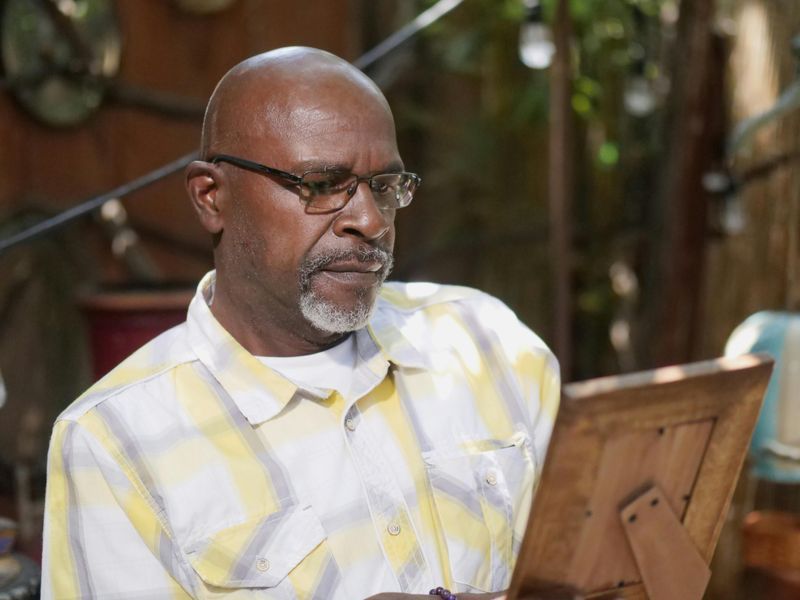Marriage is supposed to be a partnership filled with love, support, and happiness. But sometimes, even the strongest relationships can hit rough patches that leave one or both partners feeling unfulfilled. When a man starts showing certain behaviors, it might signal that something deeper is troubling him in his marriage. Recognizing these signs early can help couples address problems before they grow too big to fix.
1. He Withdraws Emotionally

Emotional withdrawal happens when someone builds invisible walls around their heart. A man who once shared his thoughts, dreams, and worries might suddenly clam up completely. Daily check-ins turn into one-word answers, and meaningful conversations feel like pulling teeth.
You might notice he seems physically present but mentally checked out during talks. His eyes glaze over, or he nods without really listening. The emotional bond that once felt strong now feels paper-thin.
This disconnection often stems from feeling misunderstood or unsupported at home. Rather than risk more hurt or conflict, he retreats inward. Rebuilding this bridge requires patience, safe spaces for honest dialogue, and genuine curiosity about his inner world.
2. He Spends More Time Alone

Suddenly, his schedule fills with extra activities that keep him away from home. Late nights at the office become routine, gym sessions stretch longer than necessary, and hobbies consume entire weekends. While independence is healthy, excessive alone time can signal avoidance.
He might scroll endlessly on his phone even when sitting next to his spouse. These behaviors create physical and emotional distance without directly addressing relationship issues. The home that should feel comforting becomes something to escape from.
Sometimes men don’t know how to express dissatisfaction, so they simply remove themselves from uncomfortable situations. Addressing this pattern means creating an environment where vulnerability feels safe, not scary or judgmental.
3. He’s Easily Irritated

Little things that never fazed him before now trigger disproportionate reactions. Forgetting to buy milk sparks an argument. A misplaced remote becomes a major issue. His fuse has shortened dramatically, and tension fills the air constantly.
This irritability often masks deeper unhappiness he can’t or won’t articulate. When someone feels trapped or unfulfilled, minor annoyances become outlets for bigger frustrations. Everything feels heavier when emotional needs aren’t being met.
Partners walking on eggshells around each other creates an exhausting dynamic. Addressing the root cause—not just the surface symptoms—becomes essential. Open conversations about underlying feelings, possibly with professional help, can help identify what’s really bothering him beneath the anger.
4. He Stops Showing Affection

Affectionate gestures that once came naturally now disappear entirely. Hand-holding stops. Goodbye kisses become mechanical pecks or vanish altogether. Compliments dry up, and spontaneous hugs feel like distant memories from another lifetime.
Physical affection reflects emotional connection. When a man pulls back from touching, cuddling, or expressing tenderness, it usually indicates emotional withdrawal too. The warmth that once defined the relationship grows cold and distant.
Sometimes this happens gradually, making it hard to pinpoint when things changed. Other times, affection drops off suddenly after a specific conflict or disappointment. Reviving affection requires addressing whatever emotional disconnect caused it to fade, creating opportunities for reconnection without pressure.
5. He Avoids Intimacy

Intimacy involves more than just physical connection—it’s about vulnerability and closeness. When a man consistently avoids sexual intimacy or seems detached during it, deeper issues are usually at play. What was once passionate becomes routine or nonexistent.
He might make excuses about being tired, stressed, or too busy. During intimate moments, he seems mentally absent, going through motions without genuine engagement. This detachment often mirrors emotional distance spreading through the relationship.
Sexual disconnection frequently signals unresolved resentment, feeling unappreciated, or emotional needs going unmet. Rekindling intimacy requires addressing these underlying issues first. Couples therapy, honest conversations about needs and desires, and rebuilding emotional trust can help restore this vital connection.
6. He Seems Lost or Unmotivated

A man who once had clear goals and energy now seems adrift. His spark has dimmed, and activities that excited him no longer hold interest. He drags through days without enthusiasm or direction, appearing hollow.
This isn’t just about the marriage—it’s about his whole sense of self. When marriage feels unfulfilling, it can drain motivation across all life areas. He might question his choices, purpose, and whether this is how life should feel.
This existential struggle often manifests as depression or apathy. Supporting him means encouraging professional help while examining what the relationship might lack. Rediscovering individual and shared purpose can reignite the passion that’s gone missing from his life and marriage.
7. He Talks Nostalgically About Better Times

Constant references to “the good old days” reveal dissatisfaction with the present. He reminisces about life before marriage, when things felt simpler or more exciting. These comments aren’t innocent trips down memory lane—they’re longing for something missing now.
He might talk about the freedom he had, adventures he took, or how spontaneous life used to be. While everyone occasionally remembers fond memories, fixating on the past suggests current unhappiness. It’s his way of saying things aren’t working now.
This nostalgia can hurt partners who feel blamed for his dissatisfaction. Addressing it requires honest discussion about what specifically he misses and whether those elements can be reintroduced into married life through compromise and creativity.
8. He Seeks Validation Elsewhere

When emotional needs aren’t met at home, some men look elsewhere for validation. This might involve flirting with coworkers, oversharing personal details with friends, or seeking attention through social media. While not always physical cheating, it represents emotional infidelity.
He craves feeling appreciated, attractive, or interesting—feelings missing from his marriage. External validation temporarily fills the void but doesn’t address core relationship problems. These behaviors often escalate if underlying issues remain unresolved.
Discovering this pattern understandably hurts, but it’s often a symptom of deeper disconnection. Rebuilding requires both partners examining how they contribute to or neglect each other’s emotional needs, then actively working to meet them within the marriage.

Comments
Loading…